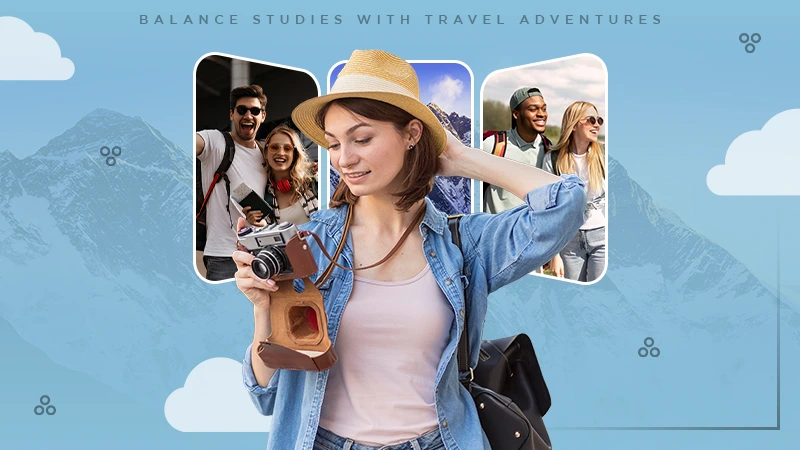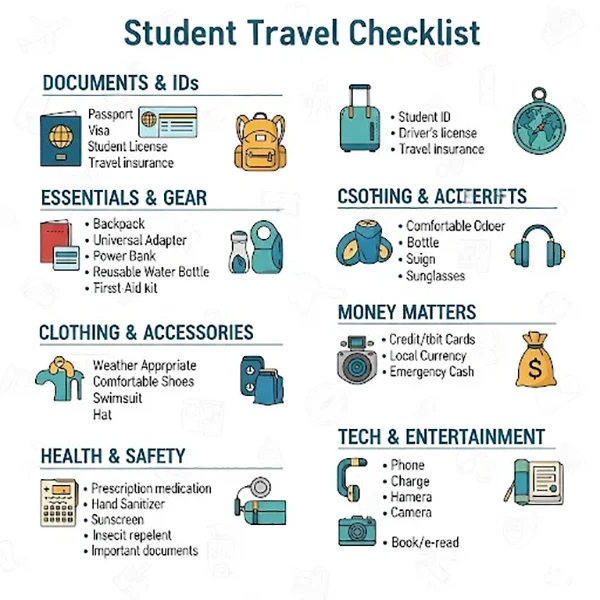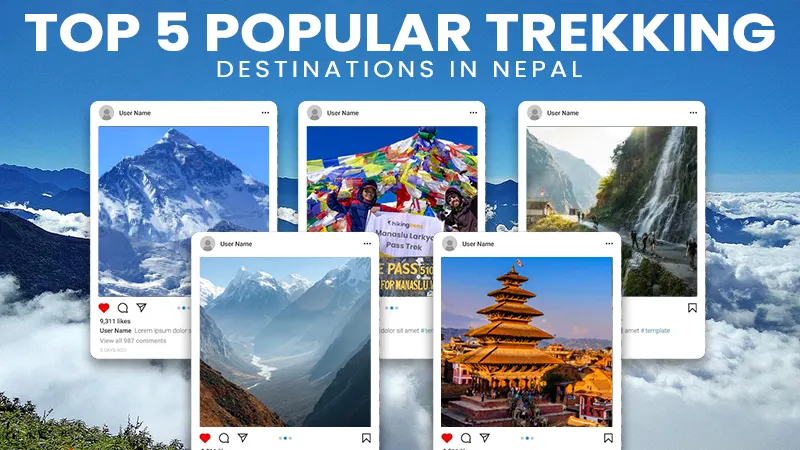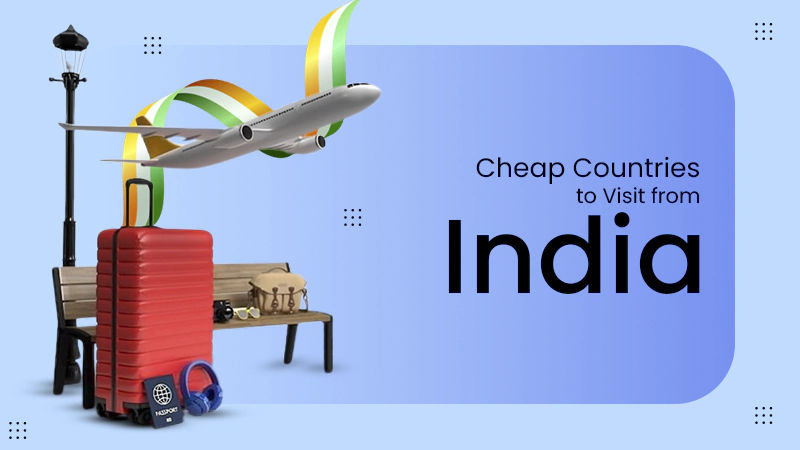
- Making Space for Studies in Travel Itineraries
- Thoughtfully Choosing Destinations to Support Your Academic Goals
- Studying on the Go: Making Airports and Cafés Your Classroom
- Using Technology to Stay on Your Academic Track
- Thinking of Travel Experiences as Learning Opportunities
- Building a Routine That Supports Both Study and Adventure
- Wrap up!
KEY TAKEAWAYS
- Complete your tasks beforehand to avoid last-minute hassle and workload stress.
- Look for locations where theoretical knowledge becomes a real-life experience.
- A productive study session can take place at the airport or in cafés.
- Keep digital study material to avoid carrying academic books, which increases the luggage.
The concept of how students see the world has changed dramatically. This means their theories do not just revolve around books or written statements, but they want to really explore the practical world. In fact, many of them are nowadays becoming more open towards their roles and responsibilities.
To be more self-reliant, they are earning through a college paper writing service in the US, which gives them a little sense of independence. These growth mindsets enable them to travel and see the world from their perspective.
As a result, the recent reports from Verified Market Reports disclose that the student travel market size was projected at 30 billion USD in 2024 and is now expected to reach 50 billion USD by the end of 2033. This exhibits a compound annual growth rate of 6.5% from 2026 to 2033.
Here is the guide to help students comply with studies and travel adventures to maintain a study-life balance.
Making Space for Studies in Travel Itineraries
Commence with preparing for an itinerary, and don’t forget to add studies as a primary objective. But foremost, make sure to finish all the tasks beforehand to avoid last-minute hassle and workload stress. Schedule the timing with fewer distractions, predetermine a quiet place, and follow the same routine every day.
Pro Tip: Prefer listening to audiobooks while traveling in transport.
Thoughtfully Choosing Destinations to Support Your Academic Goals
What could be better than choosing destinations that can turn a student’s theoretical knowledge into a real-life experience? Or simply dig down closely into the history, culture, or origin of the destination.
For example, a trip to Vietnam can express the tale from the times of French colonization, including their methods of survival and struggle to win independence.
Studying on the Go: Making Airports and Cafés Your Classroom
Here is where dedication is required to meet enthusiasm. In simple terms, cafés and airports are the places where most people spend their spare time. For students, it can be a golden chance to convert their leisure time into a productive study session.
Just find a corner seat with minimal traffic, be prepared for interruption, and get adapted to that with the help of a dedicated mindset.
Check out the most essential checklist for students with the help of an infographic below. This will prevent them from forgetting most essential items.

Using Technology to Stay on Your Academic Track
Travelling is already a hectic journey where an extra KG can cause trouble. In this case, carrying academic books will definitely not be ideal, so better to keep digital study material. Additionally, use note-takers, task managers, or simply take help from the best college essay writing service for lengthy writing projects.
Don’t forget to carry tech accessories while in a student travel program:
- Noise cancellation headphones
- Tablet to get a wide-view study
- Smartwatch for instant navigation and calls
Thinking of Travel Experiences as Learning Opportunities
There is a universe of knowledge beyond academic studies, which can be acquired only with experience. It simply means: the more students get exposure to the outer world, the more they will learn.
Not just in terms of learning, but also in gaining confidence, encouraging self-awareness, and developing understanding through a real-world interactive engagement with diverse people with distinctive perspectives.
Building a Routine That Supports Both Study and Adventure
The key to building a routine that supports both study and adventure lies in consistency. All the students need is to prioritize tasks and create a realistic schedule to integrate them into their daily schedule, even during local exploration.
Note down these points as well:
- Set clear goals
- Follow schedule
- Avoid procrastination
- Leverage leisure time
Pro Tip: Keep the study schedule the early as possible to start with a fresh mind.
Wrap up!
Study-life balance is not a piece of cake, especially for college or high school students wanting to travel. But always keep in mind that, when there is a will, there is a way. So, in this case, tactical planning and integrating studies with exploration can make things a bit smoother.
Lastly, be prepared and enjoy a rewarding and safe journey!
How to be a top 1% student?
To be a top 1% student, you need to attend class regularly. If you miss a class, take notes from someone, pay attention in class, give tests regularly, and other such things are mandatory.
What makes travel important to a student’s life?
It is a journey of self-discovery, which also gives exposure to global real-world life beyond the imagination of the book.
What is the term for students’ group travel?
A field trip is the term used to describe a group traveling, specified for educational enhancement.
What is the most affordable international trip for students?
The most affordable international trips can be explored mainly in Southeast Asian countries like Vietnam, Thailand, etc.







